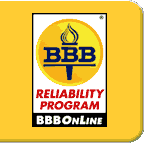Course Description: Elementary concepts of sets,
numeration systems, number theory, and properties of
the natural numbers, integers, rational, and real number systems with an
emphasis on problem solving and
critical thinking. Prerequisites : Admission to MTE Middle Level course of study.
|
Course Outline: |
Approximate time spent |
| |
|
| •
Techniques of problem solving and estimation skills |
10% |
The following topics will be threaded throughout the
course in order to develop the habit of mind
necessary in mathematics:
o Introduce Polya’s Problem Solving Process: Understand the Problem, Devise a
Plan, Carry Out
Plan, Look Back
o Explore Basic Problem Solving Strategies
o Explore Patterns in Language, Figures, Numbers, and Geometry: Sequences,
Including
Arithmetic and Geometric
o Describe Patterns using Multiple Formats : Recursive & Closed Form Rules
o Develop Estimation Skills with Mental Arithmetic
| •
Sets and Logic: An Introduction |
20% |
o Classify and Sort Objects According to Attributes
o Introduce the Language of Logic Connectives: And, Or, Not, Implies
o Use Venn Diagrams as Problem-Solving Tools
o Introduce Set Terminology and Notation : Universal Set, Empty Set, Set Builder
Notation,
Element, Cardinality
o Explore Set Relations, Operations, and Properties: Subset, Proper Subset,
Equal, One-To-One
Correspondence, Equivalent, Intersection, Union, Cross Product , Complement,
Minus (Relative
Complement), Disjoint, Commutative, Associative, Distributive
o Introduce Functions as Sets
| •
Whole Numbers and Numeration: Concepts and
Algorithms |
15% |
o Define the Set of Whole Numbers
o Model Whole Number Operations using a Variety of Methods: Addition - Set
Union, Number
Line; Subtraction - Take Away, Missing Addend, Comparison , Number Line;
Multiplication -
Repeated Addition, Rectangular Array (Area), Cartesian Product, Number Line;
Division -
Repeated Subtraction, Missing Factor, Grouping , Sharing
o Discover and Verify Properties of Operations: Binary Operation; Closed,
Commutative,
Associative, Distributive - Multiplication Over Addition, Identities,
Multiplication By Zero; Division
Algorithm
o Explore Place Value Systems using Base Five Arithmetic
o Develop and Apply Algorithms for Whole Number Operations
o Develop Definition and Properties for Whole Number Exponents
| •
Number Theory: An Introduction |
15% |
o Define and Explore Primes and Composites
o Explore Basic Divisibility Properties of Sums and Products
o Explore Applications of the Fundamental Theorem of Arithmetic
o Define the GCD and LCM and Use Algorithms for Finding Each
o Explore Applications of the GCD and LCM
| •
Integers: Concepts and Algorithms |
15% |
o Model Integer Operations Using A Variety Of Methods
Including Charged Field, Measurement,
etc.
o Investigate Extensions Of Whole Number Operations And Their Properties:
Additive Inverse ;
Closed, Commutative, Associative, Distributive- Multiplication Over Addition,
Identities, Additive
Inverse, Multiplication By Zero
o Define Absolute Value
o Review Solution Techniques For Simple Linear Equations And Inequalities:
Addition/Multiplication Properties Of Equality, Substitution Property,
Cancellation Property
o Revisit The Division Algorithm
| •
Real Numbers: Concepts and Algorithms |
25% |
o Investigate Practical Uses For Fractions
o Explore Connections Between Fractions, Rational Numbers, Decimals, And
Percents
o Investigate Rational And Irrational Number Representations: Equivalent
Fractions; Proper And
Improper Fractions; Mixed Numbers; Decimals, Radicals, And Fractional Exponents
- Square
Root , Principal Square Root , nth Root; Terminating And Repeating Decimals
o Explore Concepts And Define/Demonstrate Properties Of Rational Number
Operations To
Include: Additive Inverse, Addition Property Of Equality, Multiplicative
Identity, Multiplicative
Inverse, Distributive Property Of Multiplication Over Addition, Multiplicative
Property Of Equality,
Multiplicative Property Of Zero
o Investigate Order And Operations In Decimal Form
o Investigate Irrational Number Order And Operations: Illustrate the Pythagorean
Theorem
o Define and Demonstrate Properties Of Real Numbers: Closure, Commutative,
Associative,
Distributive, Identity, Inverse, Density
o Develop Proportional Thinking to Include Ratio and Proportion, Properties of
Proportions,
Fundamental Law of Fractions
Course Objectives: At the end of this course, successful students will be
able to:
• To become a more effective problem solver by experiencing multiple
opportunities to explore and
practice various problem solving techniques.
• To learn concepts underlying algorithmic procedures.
• To become a better communicator of his/her knowledge and experiences by
regularly justifying ideas
verbally, concretely, and in writing.
• To develop appropriate language and notation over time.
• To learn to value mathematics.
• To make appropriate connections from MTE 564 to the middle level
classroom.



